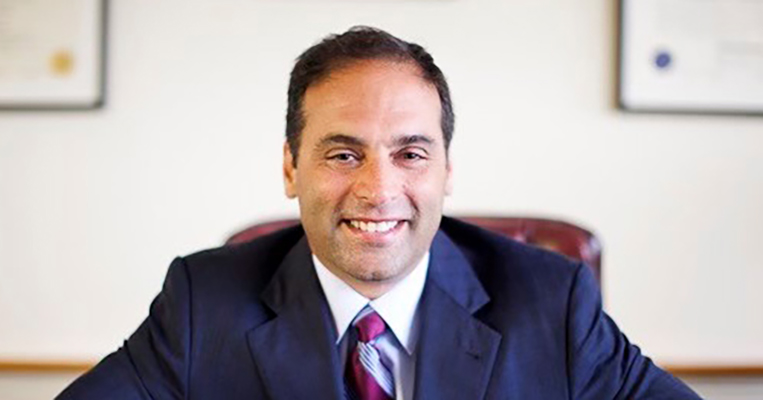An Estate Planning Checklist is one of the most effective ways to ensure your assets, wishes, and loved ones are protected. Estate planning is an often overlooked aspect of financial well-being, yet it’s among the most crucial preparations for managing and preserving what you’ve built.
Equally important, anyone, not just the affluent, can benefit from an estate plan. Everyone has an estate they cherish and hope to pass on to their loved ones with as little hassle as possible.
To make a good estate plan, hire an experienced estate planning lawyer near you. The attorney can assist with preparing the required documents and ensure your plan complies with Pennsylvania state laws.
Estate Planning in Pennsylvania: Why Local Guidance Matters
Estate planning laws vary from state to state, and Pennsylvania has its own set of rules for wills, trusts, inheritance tax, and probate. Working with a Pennsylvania estate lawyer ensures that your plan meets all state requirements and reflects your personal wishes.
Our estate planning lawyers serve clients across Bucks, Montgomery, Delaware, and Chester Counties. We help families of all sizes prepare the documents they need, from wills and powers of attorney to trusts and living wills. The aim is simple. To protect their loved ones with confidence.
This Estate Planning Checklist can help you get started, but personalized advice from a local attorney ensures that every detail complies with Pennsylvania law and aligns with your long-term goals.
What is an Estate Plan?
An estate plan is a collection of legal documents. They detail how you want your assets handled and distributed upon death or incapacitation.
Those documents go well beyond simply writing a will. They encompass every aspect of your assets, healthcare, and guardianship for minors.
Components of an Estate Plan
At the least, any estate planning checklist must include some of these foundational documents:
- Will: A legal document stating your wishes regarding the distribution of your assets. It can also include directives for the care of any minor children.
- Trusts: Legal arrangements allow a third party or trustee to hold assets on a beneficiary's behalf.
- Durable Power of Attorney: This document allows someone you trust to act on your behalf. They can make financial and legal decisions for you if you cannot.
- Healthcare Directives: They specify your wishes regarding medical care if you become incapacitated and cannot express your preferences.
Why is an Estate Plan Important?
Estate planning is more than just distributing your assets; it's about ensuring peace of mind for yourself and your loved ones. Here's why it's crucial:
- Asset Protection: Without a plan, your estate might undergo a lengthy and expensive probate process. Estate planning helps minimize taxes and legal fees, ensuring more of your assets go to your beneficiaries.
- Fulfilling Wishes: An estate plan respects your personal and financial wishes even when you cannot voice them.
- Preventing Disputes: Stated wishes can help avoid family disputes over assets and inheritance, preserve relationships, and honor your legacy.
- Legal Complications: A well-crafted estate plan can prevent legal issues that might otherwise arise and ensure a smoother transition of assets to your beneficiaries.
An estate plan is vital in managing your financial well-being. It also cares for your loved ones while ensuring that it meets your final wishes.
Essential Considerations for Your Estate Planning Checklist
Each item plays a critical role in assembling your estate planning documents. Here's what you need to consider:
- Inventory of Assets: Before you can plan to distribute your assets, you need to know what they are. This includes both tangible and intangible assets.
- Family Members: Consider the roles your family members will play. Who will inherit assets? Who will make financial and healthcare decisions if you cannot do so? Who will serve as guardians for any minors?
- Directives: If you're incapacitated, you must select a healthcare agent to make decisions on your behalf. You'll also need a financial agent to handle your financial affairs.
- Beneficiaries: Clearly define your beneficiaries, what they will inherit, and in what proportions.
- Guardianship: If you have children under 18, you must designate a guardian who will care for them if you cannot.
Creating Your Estate Plan: A 7 Step-by-Step Checklist
Now that we've outlined the essential elements, let's walk through the steps to create your estate plan. An estate planning attorney can help to ensure you cover all your assets accurately.
1. Inventory Your Assets
The first step in the estate planning process is making a comprehensive list of your assets. Even if you think you have a smaller asset pool, you may be surprised.
Document your tangible assets. When documenting, it's a good idea to include details such as market value, title, description, etc.
- Real estate, including homes and land
- Vehicles
- Collectibles like jewelry, art, antiques, and coin
Document your intangible assets, again paying attention to policy ownership, institutions, balances, face value, death benefits
- Bank accounts
- Stocks and bonds
- Retirement accounts
- Life insurance policies
- Health savings accounts
- Business ownership
- Debts or liabilities, including mortgages, credit lines, or personal loans
2. Document Your Family Members in Your Checklist
When considering family members, include their full names, addresses, and contact information. Define their roles and what you envision for them in your plan.
- Spouse
- Children
- Step-children
- Adopted children
- Aunts
- Uncles
3. Select a Healthcare Power Attorney
Select someone who understands your advanced healthcare directives. Those preferences can include treatments and end-of-life concerns. Your healthcare power of attorney advocates for you if you're incapable of doing so.
4. Select a Financial Power of Attorney
A financial POA, similar to your healthcare POA, makes fiscal decisions if incapacitated. That individual can execute legal documents, withdraw funds, create trusts, file taxes, and manage investments.
You can document what financial powers you defer to your POA.
5. Establish Beneficiary Designations
Beneficiary designations determine who receives your assets and what assets they receive. You can also present who you wish to exclude from your estate assets.
The more clearly you cite your wishes, the less potential for disputes among inheritors.
Consider establishing trusts for minors or others who might not manage a direct inheritance well.
6. Determine Guardianship for Minors
If you have children under 18, choose a guardian to care for them. That individual should share your values and have the capacity to take on this responsibility.
Discuss your decision with the chosen guardian to ensure they're willing and able to accept the role.
7. Draft Your Estate Transfer Documents
After using the estate planning checklist, you can work with an estate attorney to draft essential documents. You must ensure that whatever estate documents you create are valid. Typically, they require witnesses and a notary.
Properly executed documents also work to eliminate or reduce probate court involvement. Again, focus your efforts on these documents at a minimum
Will
You can use an online service to draft your will. However, using an attorney ensures you write a valid will that addresses nuances in Pennsylvania's estate laws.
Trusts
Two types of trusts exist: one created during your lifetime and another under your will. Moreover, you have numerous options available. Again, an estate planning lawyer can help determine your best choice.
Power of Attorney
When assigning a durable power of attorney, you'll need to determine the nature of their power. That includes what authority you grant and actions they can execute on your behalf.
Living Will or Advanced Healthcare Directive
A well-drafted estate plan includes your wishes about end-of-life healthcare. A living will addresses life-prolonging measures, burial instructions, and organ donation.
Here's more information about the five most important estate planning documents.
An Estate Plan is Dynamic
Pay attention to two other critical concerns with your estate plan.
First, keep the documents safe and accessible to your representatives. You can also distribute them to family members, trustees, physicians (living will), etc.
Second, revisit the documents as life circumstances change. An estate plan is dynamic and can be updated based on those circumstances.
Consult with an Estate Planning Lawyer Near You
Estate planning is fundamental to managing your affairs and ensuring the care of your loved ones in your absence. Following this estate planning checklist can help you create a comprehensive plan that reflects your wishes and provides for your family.
Our estate planning lawyers work with clients in Bucks, Delaware, and Montgomery County, PA. If you're ready to start the process, get in touch. They'll work with you to draft a plan to protect your assets and family.










